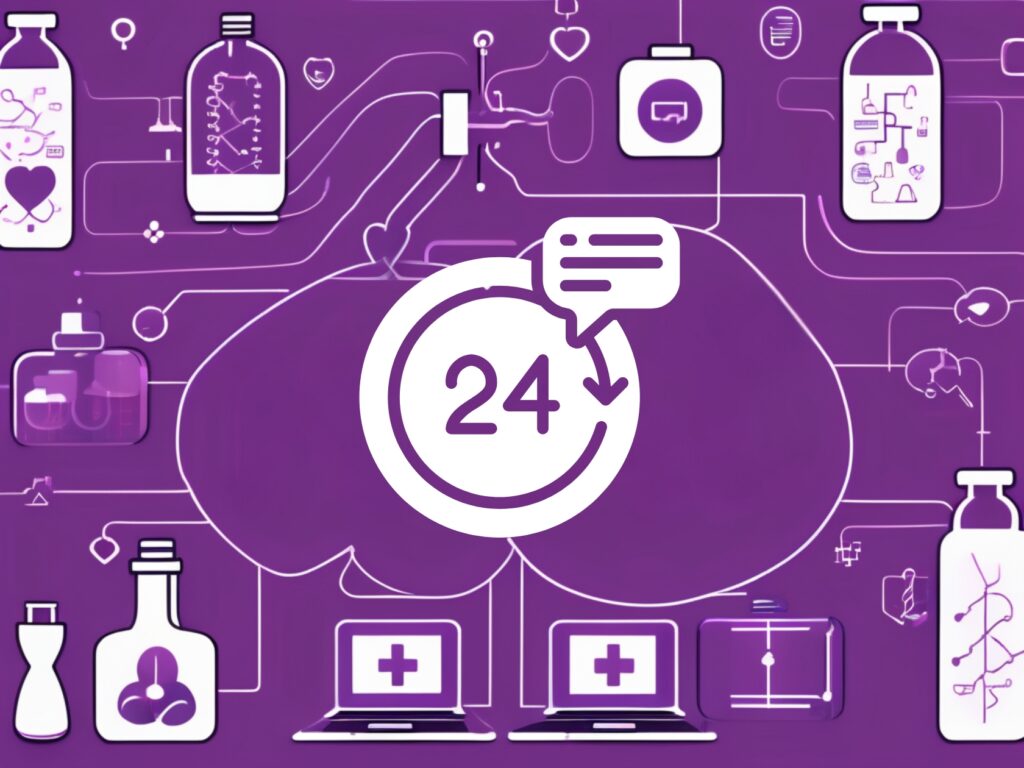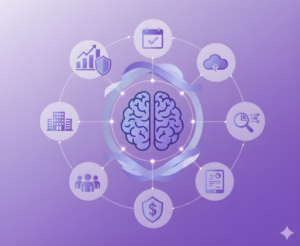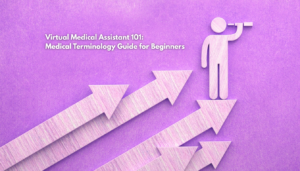The Advantages of Live Chat and Auto-translation in the Medical Industry
17 Aug 2018 By: Maria Rush
Updated
Live chat and auto-translation improve medical communication by letting patients get fast help and understand care instructions in their own language. Live chat reduces delays for questions, scheduling, and follow-ups, while auto-translation breaks language barriers during messages, forms, and basic support. For example, a patient can ask about medication side effects in Spanish through live chat and receive an instant translated response, which helps prevent misunderstandings and supports safer care.

Understanding Live Chat and Automatic Translation
Defining Live Chat in the Medical Industry
Live chat is an online tool that connects patients with healthcare providers instantly. They can ask questions about their health or treatment options. This reduces uncertainty and worry.
Providers use live chat to manage appointments and offer support quickly. It avoids the delays of phone calls or in-person visits by incorporating translation technology for instant communication. Clinics run more efficiently, and patient satisfaction rises.
Live chat also boosts engagement. Patients can reach out easily, which helps them stick to treatment plans. The convenience encourages them to seek help earlier. This can lead to quicker diagnoses and treatments.
It can also integrate with telemedicine and patient portals can benefit from translation management to cater to diverse linguistic needs.. Patients can chat, access records, schedule appointments, and get reminders in one place. This helps them take control of their healthcare.
The Role of Automatic translation in Healthcare
Automatic translation helps communication across languages. It instantly translates messages, allowing healthcare providers to serve diverse patients.
This tool is important. It ensures everyone gets access to medical care. Automatic translation quickly converts documents, patient records, and health information. Language no longer stands as a barrier in healthcare.
It also improves health outcomes. When patients understand their diagnosis, they follow advice better. In emergencies, quick translation can save lives.
Automatic translation also helps healthcare teams with multilingual staff. It keeps everyone aligned on patient care.
As technology advances, automatic translation tools get more accurate. AI and machine learning improve their ability to handle medical terms. This breaks down language barriers, helping providers deliver better care.
Trending Now
Article from MedCity News highlights the urgent need for better language support in healthcare for individuals with limited English proficiency (LEP) and the deaf and hard-of-hearing community, which will grow by 2050. Language barriers can cause dangerous miscommunication, affecting patient outcomes and safety. Although federal laws require language access, the healthcare system struggles to meet these needs. AI-powered translation and interpretation tools are emerging as cost-effective solutions. These tools improve communication, reduce errors, and provide real-time support, helping to bridge the gap between providers and patients.
The Impact of Live Chat on Patient Care
Improving Patient Communication with Live Chat
Effective communication is key in healthcare. Live chat creates open conversations between patients and providers. Patients feel more at ease sharing their concerns this way.
Healthcare staff can respond quickly to questions. Patients appreciate fast answers, which can lead to better outcomes. When patients use live chat, they are more likely to stick to treatment plans.
Live chat also reassures anxious patients. The privacy of online chat allows them to ask questions they might avoid in person. This is especially helpful for sensitive topics like mental or sexual health.
By offering a safe space for discussion, live chat empowers patients to take charge of their care.
Integrating live chat with patient portals makes things even easier. Patients can access records, book appointments, and chat with providers in one place. This saves time and boosts patient engagement, leading to better health outcomes.
Reducing Wait Times through Live Chat
Long wait times frustrate patients. Live chat helps by reducing the delays of traditional communication. Patients can chat with support without being put on hold.
This quick access gives patients the answers they need right away. Clinics can handle several inquiries at once, cutting down overall wait times.
Using chatbots with live chat boosts efficiency even more. Chatbots can answer common questions and handle simple tasks before passing patients to a live representative. This saves staff time for more complex issues and gives patients faster help.
Live chat also collects valuable data. By reviewing chat transcripts, healthcare providers can spot trends and adjust their services. This leads to more personalized care and strengthens patient-provider relationships.
The Benefits of Automatic Translation for Medical Professionals
Overcoming Language Barriers in Healthcare
Language differences can cause problems in healthcare. Automatic translation helps medical professionals communicate better with patients. It makes consultations smooth and inclusive.
By removing language barriers, providers can offer clearer care. They can explain conditions and treatments in a way patients understand. This technology helps patients make informed decisions about their health.
It also builds trust. When patients feel understood in their own language, they’re more comfortable. This improves the accuracy of diagnoses and treatment, leading to better health outcomes.
Enhancing Medical Documentation with Automatic Translation
Medical documents often need precise translations. Automatic translation makes this easier, allowing professionals to quickly translate records using neural machine translation.
Accurate documentation is crucial for patient care and legal compliance. Automatic translation ensures key information is correct, saving time and reducing errors.
This technology also improves workflow in busy settings. By automating translations for patient histories, consent forms, and discharge instructions, providers can focus more on patient care.
As healthcare becomes more global, maintaining consistent, accurate documentation across languages is vital for collaboration and research.
The Synergy of Live Chat and Automatic Translation
Streamlining Patient-Doctor Interactions
The combination of live chat and automatic translation creates a strong communication platform. Patient-doctor interactions become smoother and faster, improving the overall experience.
Doctors can respond quickly, while patients express themselves without language barriers. This builds trust and understanding between both parties. The real-time nature of live chat allows for quick clarifications, leading to faster diagnoses and better outcomes.
These technologies also lighten the load on administrative staff. By streamlining communication, resources are used more efficiently, improving both patient care and workflow in healthcare settings.
Facilitating Multilingual Medical Support
In a globalized world, multilingual support is essential. Live chat with auto-translation helps healthcare providers serve diverse populations more effectively.
This technology attracts patients who might otherwise avoid care. Multilingual support broadens access and makes everyone feel welcome and understood. Speaking in a patient’s native language also reduces misunderstandings about medical advice, ensuring compliance and safety.
As healthcare evolves, the need for personalized, accessible care grows. By using live chat and auto-translation, providers meet this demand and foster inclusivity. This improves patient satisfaction, builds stronger relationships, and boosts health outcomes across diverse communities.
Future Prospects of Live Chat and Auto-translation in Healthcare
Technological Advancements and Their Implications
The future offers exciting possibilities for live chat and auto-translation in healthcare. Advances in technology will lead to more efficient systems. AI-driven chatbots could soon handle common questions instantly, from symptoms to medication side effects and scheduling. This would ease the load on healthcare staff, letting them focus on more complex needs.
As these technologies improve, their accuracy and functionality will enhance the patient experience. Natural language processing (NLP) will help chatbots understand context and nuance in patient queries. Multilingual support will also grow, allowing patients to communicate in their preferred language. This will create a more inclusive environment, encouraging better patient engagement and leading to improved health outcomes.
Potential Challenges and Solutions
Despite the benefits, challenges remain. Security and privacy are critical in healthcare. Protecting patient information while using live chat and auto-translation is essential. Providers must use strong security measures, such as end-to-end encryption and secure authentication. Regular audits and compliance with regulations like HIPAA are also necessary to maintain trust and protect sensitive data.
Training staff to use these tools effectively is just as important. Organizations should invest in comprehensive training programs. These should cover both technical skills and the importance of empathy, clear communication, and understanding the translation process. By preparing healthcare teams to use live chat and auto-translation well, they can improve patient care without losing the personal touch. Ongoing support and feedback will also help staff stay up to date with evolving technologies, encouraging continuous improvement.
Conclusion
In conclusion, live chat and automatic translation are transforming the medical industry. They improve communication, cut wait times, and improve patient care. These tools empower healthcare providers to offer more inclusive and efficient services. Embracing these advancements will continue to strengthen healthcare in the future.
Ready to revolutionize your medical practice with the power of live chat and auto-translation? HelpSquad BPO is here to support your journey towards enhanced patient care and communication. Our bilingual virtual assistants and 24/7 customer service team are trained to handle your specific needs, starting at just $8.50 per hour. Elevate your healthcare services and ensure no patient is left behind due to language barriers. Start your trial today and comfort of their wireless devices.


